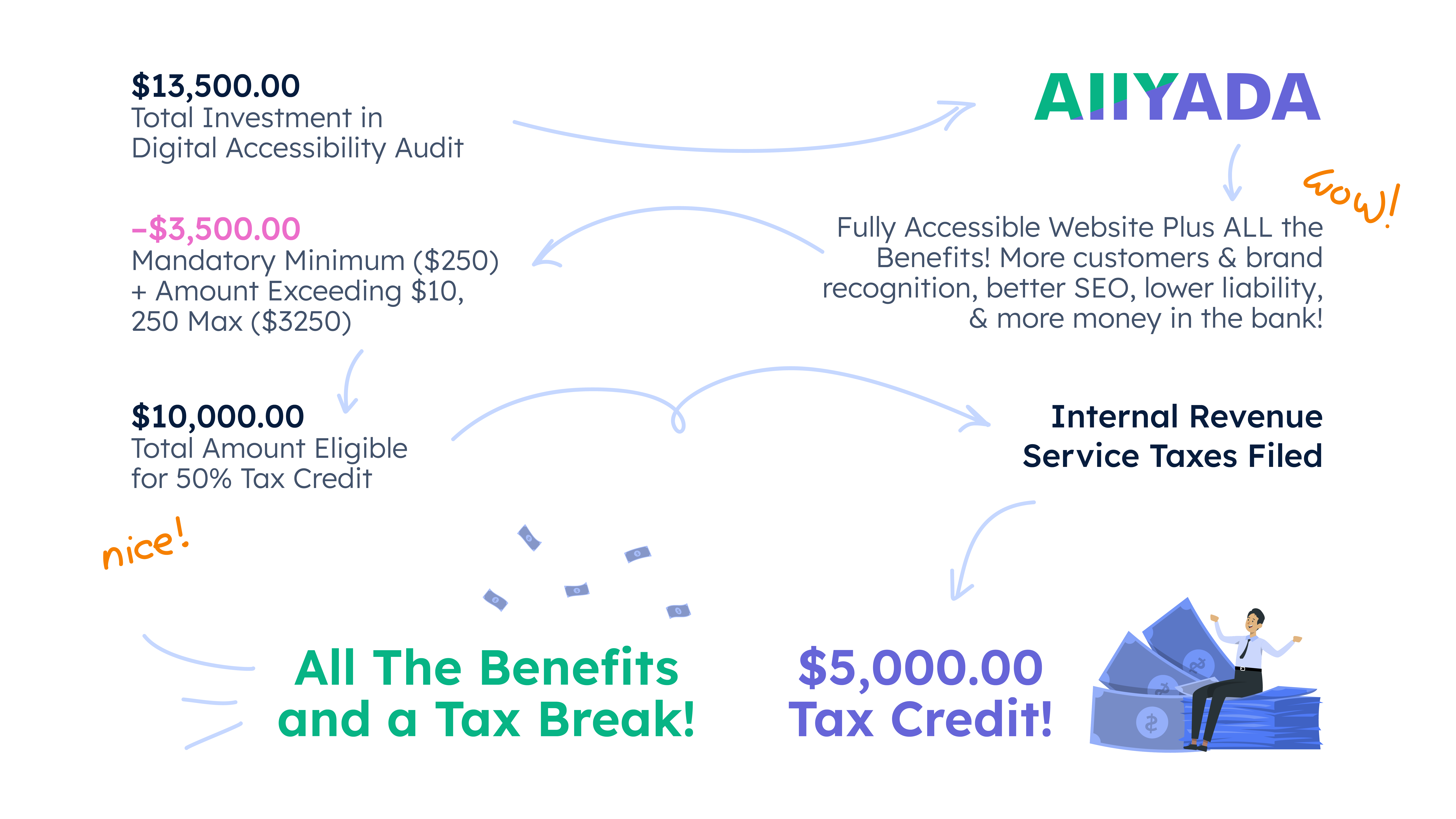
How Can Online Businesses Get a Tax Credit for Accessibility Audits and Upgrades?
What a great question!
When you think of expanding your business reach to blind and low-vision consumers, chances are pretty good that you don’t think about tax credits. This is because the Americans with Disabilities Act (ADA) centers the human experience of expanding accessibility to end unnecessary barriers to daily life. It is perceived by consumers as a huge step in the right direction. However, as a regulatory framework, the ADA has often been perceived by small businesses as a source of economic burden because accessibility upgrades and ADA lawsuits are viewed as costly.
But this perception is unfair and inaccurate. In fact, the federal government enacted complementary legislation to encourage accessibility upgrades by affording eager businesses generous tax breaks to implement change! Even better, accessibility upgrades are the gift that keeps on giving by amplifying a host of exciting benefits that demonstrate the power of inclusivity to boost rankings, reach, and profits simultaneously. So, investing in online accessibility is an investment in your consumer base, your marketing strategy, and your bottom line. Which is what makes accessibility good for business.
What is the Disabled Access Credit?
The Disabled Access Credit is a federal tax credit that allows online businesses to invest in digital accessibility upgrades while also investing directly in their own growth. Smart businesses like AllyADA leverage this incentive to be an exceptional resource for smart businesses like yours that want to capture the tax break and boost their bottom line. Let’s look at the tax credit and what this means in a practical sense.
Which companies are eligible?
Any company with either (1) an annual revenue up to $1,000,000 or (2) up to 30 full-time employees is eligible. How many businesses fall into one of these categories? According to the Small Business & Entrepreneurship Council, a whopping 89% of businesses in the United States employ fewer than 20 people. And only 5% of small businesses make over $1 million dollars per year. This means that 95% of online businesses are eligible for the Disabled Tax Credit.
How much does the tax credit cover?
For any eligible businesses, the tax credit covers 50% of accessibility expenditures in a given tax year, with a minimum of $250.00 spent and a maximum of $10,250.00 spent. So, the more you invest (up to the max), the more you get in tax incentives!
Let’s look at two examples:
1. Here, a business invests $3,500.00 with AllyADA for digital accessibility auditing services. Since the tax break doesn’t apply to the first $250.00, that is deducted from the total investment.

The remaining $3,250.00 is eligible for the 50% tax credit!
This business got the full complement of benefits that accessibility brings AND recouped $1,625.00 in tax credits!
2. Here, a business invests $13,500.00 with AllyADA for digital accessibility auditing services. Since the tax break doesn’t apply to the first $250.00 and doesn’t apply to any amount above the $10,250.00 max, both amounts are deducted from the total investment.

The remaining $10,000.00 is eligible for the 50% tax credit!
This business got the full complement of benefits that accessibility brings AND recouped $5,000.00 in tax credits!
Notably, this tax credit is available year after year, with no limit. This means that a business willing to get and stay ADA-compliant can continue to reinvest through monitoring and auditing check-ups as often as necessary (depending on tech, web design, and regulatory changes) and still always catch a tax break for the money invested.
Talk to AllyADA Today to Learn More!
With this tax incentive, the federal government ensures that the benefits of investing in digital accessibility bring a bang for your business buck that is even bigger and bolder than you probably realized. Any one of our accessibility specialists would be happy to review your website, discuss goals, build a proposal, and highlight the tax benefit you can pocket.
